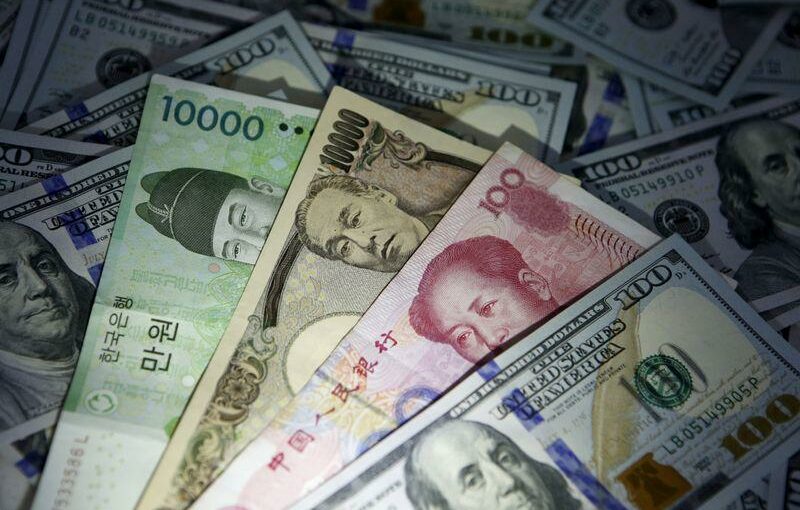SINGAPORE (Reuters) – The dollar stood on the verge of fresh year-to-date peaks on Wednesday, as jitters about surging virus infections buttressed gains built on higher interest rate expectations, with investors waiting on the European Central Bank for their next cue.
The euro touched its lowest since April on Tuesday and, at $1.1772 in Asia, was not far above the year’s nadir at $1.1704. It might find support if the ECB fails to meet expectations for a dovish tweak to rates guidance at its Thursday meeting. But if that is delivered, it could open the way for further weakness.
“The implication is the ECB’s monetary policy will now remain ultra easy for even longer which is a headwind to the euro,” said Commonwealth Bank of Australia strategist Kim Mundy.
Other majors likewise faced difficulty escaping multi-month lows leaving sterling, the Canadian, Australia and New Zealand dollars to trade under pressure in the Asia session.
“The U.S. dollar does seem to have quite an undertow of support,” said Westpac analyst Sean Callow in Sydney.
The dollar index added 0.1% to 93.033 and could test its March peak of 93.439, Callow said, as the currency seemed to find help from risk aversion when investors were nervous and support from rate hike expectations when they were not.
“The general mood on the dollar looks as though it would take a lot to derail the basic narrative of the dollar being in fairly good shape from here to the Jackson Hole conference,” he added, referring to the August symposium in Wyoming where the Federal Reserve may announce tapering of its bond purchases.
“For the time being you’d probably just prefer to keep long dollars for the next few weeks.”
Elsewhere the Australian dollar took a knock from soft retail sales data and the expectation of more weakness in the near term as much of the country is locked down to slow coronavirus transmission. It was off 0.3% at $0.7310.
The New Zealand dollar was parked at $0.6913 and the Canadian dollar began to hand back some of the bounce it managed overnight.
The dollar was steady against the safe-haven yen, which has also been advancing broadly while concerns grow about surging global coronavirus infections and the obstacle they could present to economies on the path to pandemic recovery.
The yen was last at 109.87 per dollar and 129.37 per euro.
The seven-day average of daily new infections is at its highest since May and the corresponding average of reported deaths is also on the rise.
Sterling faces pressure as cases soar while England drops most social curbs.
Sterling was last at $1.3616, below its 20-day and 200-day moving averages and just a fraction over Tuesday’s five-month low. The Singapore dollar also traded near Tuesday’s eight-month low after the reimposition of some curbs.
With a light data calendar on Wednesday, Thursday’s ECB meeting looms largest on the horizon. A dovish tone is expected after President Christine Lagarde foreshadowed a guidance tweak during an interview last week.
The ECB announced a new strategy which allows the bank to tolerate inflation above its 2% target and Lagarde said policy guidance would be revisited to demonstrate the bank’s commitment to the new goal.
“No change in the ECB bias is unlikely to be enough to send the euro higher,” analysts at ING said in a note. “At the same time, any ECB shift towards the dovish interpretation of the strategic review would underscore the recent downward euro/dollar trend.”
In the digital space, cryptocurrencies clawed back Tuesday’s losses to drag bitcoin from a one-month low and back over $30,000.
Source: Read Full Article
